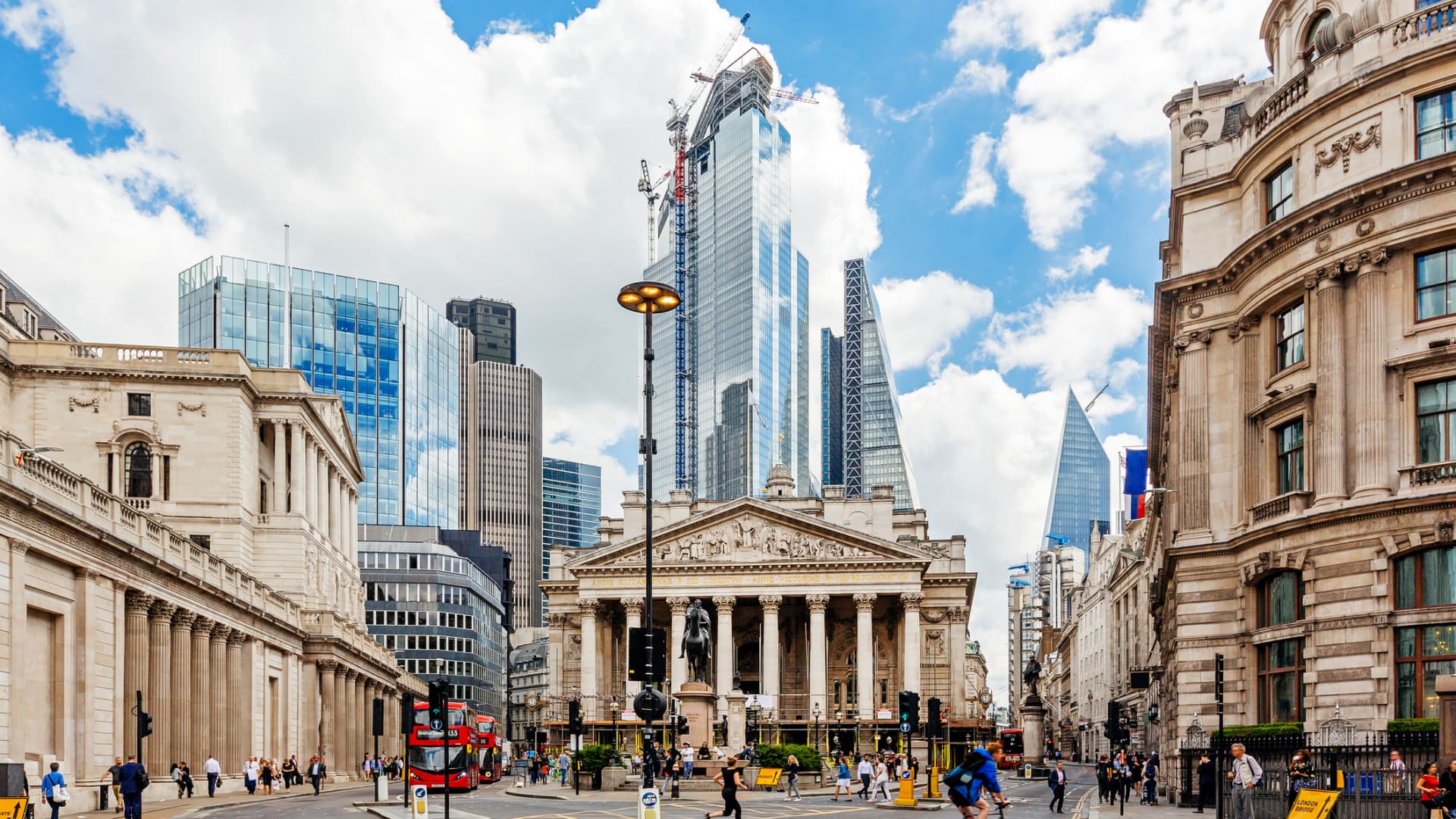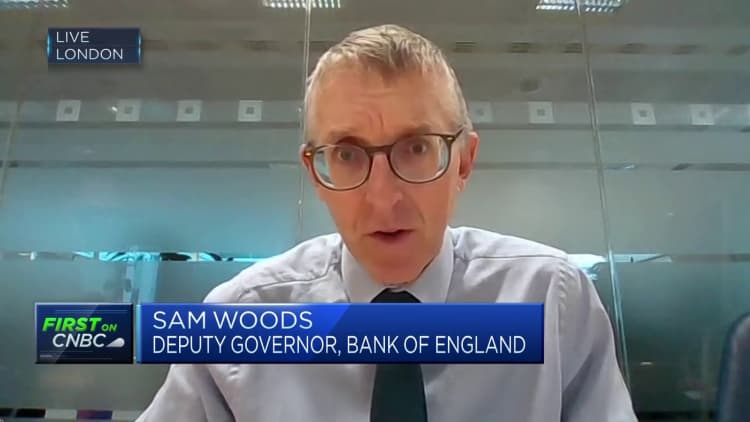Bank of England deputy governor says impairments rising among UK lenders


In August, the Bank of England increased interest rates for the 14th time in a row.
Alexander Spatari | Moment | Getty Images
The British banking sector is seeing a rise in impairments amid rising inflation and ensuing interest rate hikes, according to Bank of England Deputy Governor Sam Woods.
In a bid to tame runaway inflation, the central bank has hiked its main interest rate from 0.1% in December 2021 to a 15-year high of 5.25% presently, and the market expects another hike later this week to 5.5%.
The economy has proven surprisingly resilient, but Woods, also CEO of the Prudential Regulation Authority, said regulators are closely monitoring potential stresses in the banking sector.
“So far things have worked out a bit better than many people expected and particularly through Covid of course, the huge fiscal and monetary support did actually shield the banking system from credit losses,” Woods told CNBC on Tuesday.
“But as we’re looking at it now, we are actually seeing a pickup in impairments across the banking sector. It’s not one that people should be alarmed about.”
The PRA estimates that just over 1% of mortgages are in arrears. Woods noted that number was equally high as recently as 2018, and during the financial crisis it was 3.6%.
“So it’s going up but from a very low base, and we’ve got a close eye on it,” he added.
The global banking system was rocked earlier this year by the collapse of several small U.S. lenders, but Woods stressed that Britain’s smaller banks are more than three times better capitalized than they were during the financial crisis.
Shadow banking
However, he said that the system of shadow banks — which provide financial intermediary services and offer loans, but are not subject to the same regulations as commercial banks — in the U.K. remains a worry for the PRA. This is particularly in light of events like the collapse of small family office Archegos Capital in 2021, which delivered a hit of more than $10 billion to the global banking system.
“That is a truly staggering and extraordinary number and the best evidence that shadow banks can still be pretty painful for the system,” Woods said.
The non-bank financial sector came into focus in the U.K. in September 2022, when the Bank of England stepped in to prevent the collapse of several U.K. pension funds after a crash in government bond prices and massive moves in interest rates exposed vulnerabilities in certain instruments.
Woods said that the PRA is also keeping an eye on these institutions and remains “very alert” to the risks, along with those arising from China’s economic headwinds. China’s property market has been ailed by faltering consumer confidence, with real estate giants Evergrande and Country Garden teetering on the brink because of mounting debt piles.
“We are of course, like everybody else, interested in commercial real estate, and we’re particularly interested in what’s happening in the property market in China, because some of our banks are very active there, and they have a significant slowdown at the moment,” he added.









